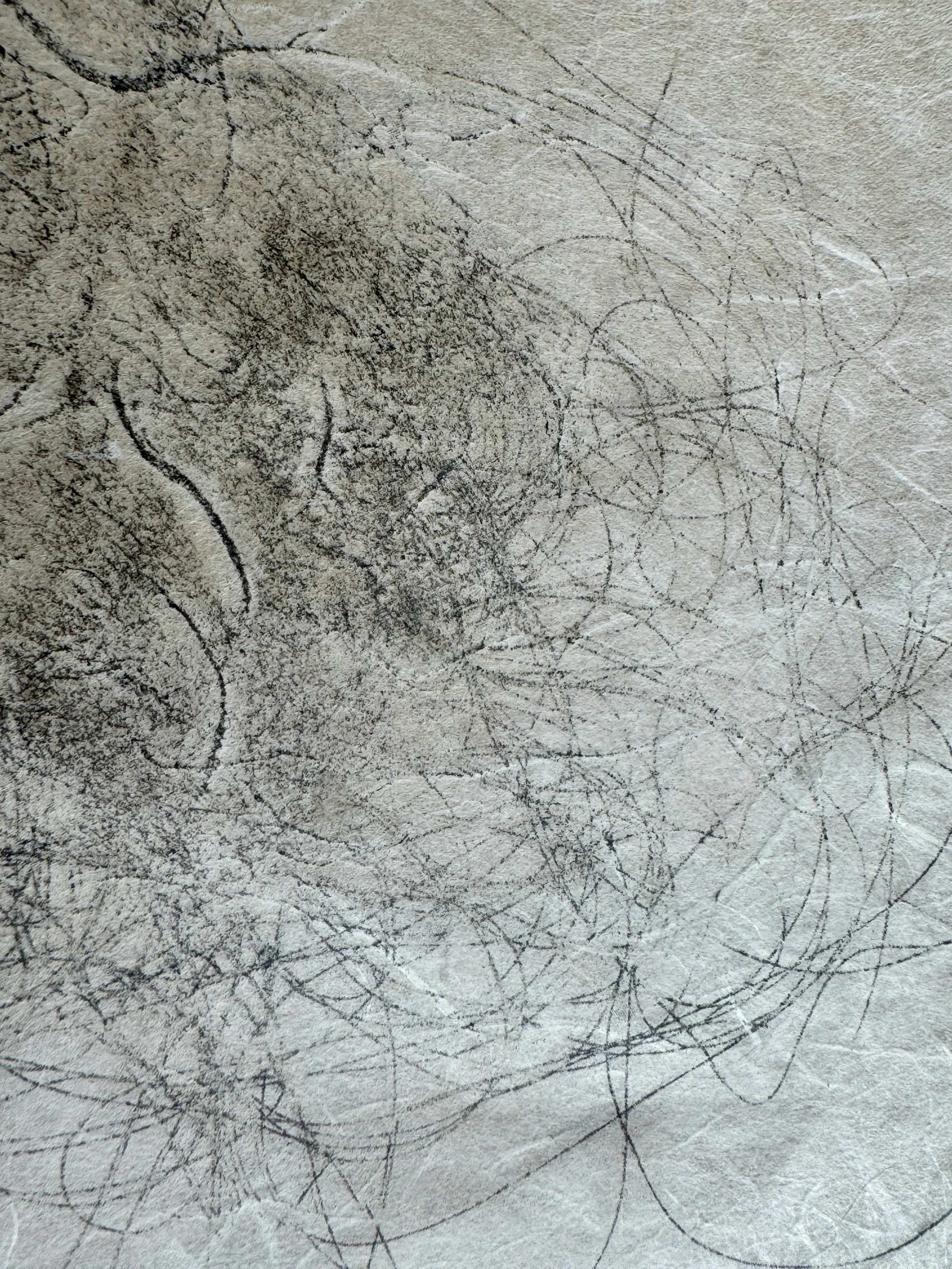Maps to Nowhere
Today I held honey-kissed hanji paper to the light and saw myself—
translucent. Permeable.
The tea water moves across its surface like
memory, like the Han River
I've never seen, but somehow know
flows through my veins. Each stain
a story interrupted. Each mark
a word I cannot pronounce
in the language that should have been
my mother tongue.
The scratches tell of hands that carved and clawed—
perhaps mine, perhaps hers,
the woman whose face I wear
in fragments. Every line intersects
with another, creating maps
to nowhere, to everywhere
but home.
Where is home when your birth certificate
is a fiction? When your name
was chosen by strangers who loved you
enough to erase you?
The salt tears, always
the salt tears, pooling where ancestry
should flow clean. What ritual
could cleanse this particular kind
of grief—the mourning of a life
unlived, a language unlearned,
a country that expelled you
before you could breathe its air?
I trace the stains with my finger and wonder:
Do the ghosts of the never-was
gather in these spaces? The grandmother
who never held me, the lullabies
unsung, the festivals
uncelebrated.
Maybe healing isn't about washing away
but about honoring what remains—
these beautiful disruptions,
these scars that prove I was here,
that something happened,
that love and loss can coexist
in the same breath.
The water dries but the marks remain.
Testimony.
Witness.
Proof of survival.

